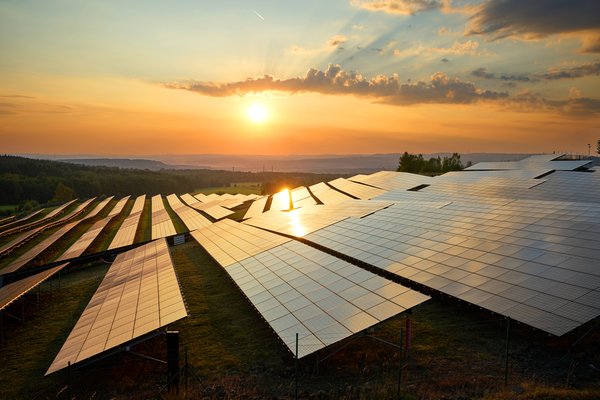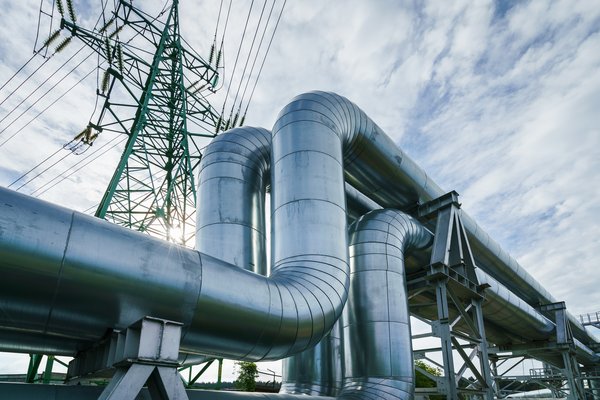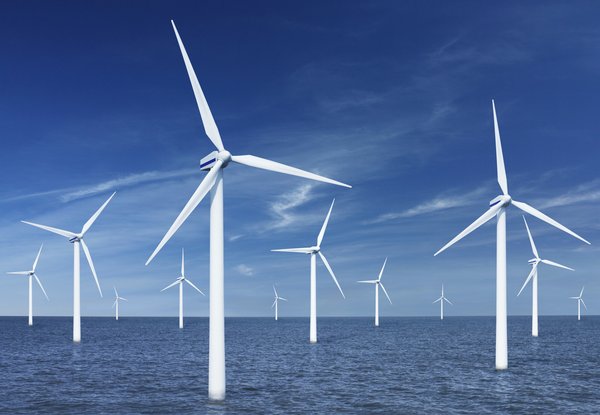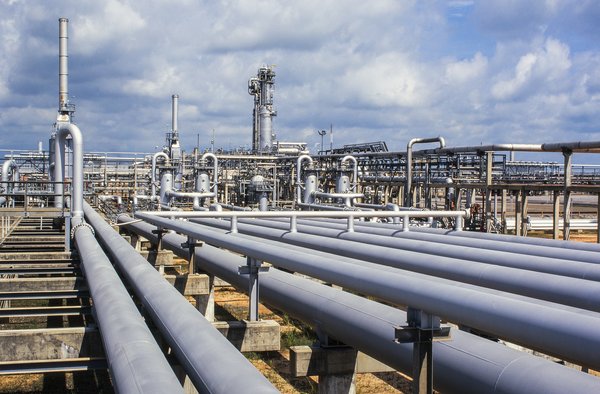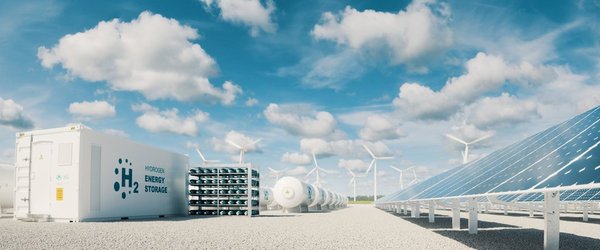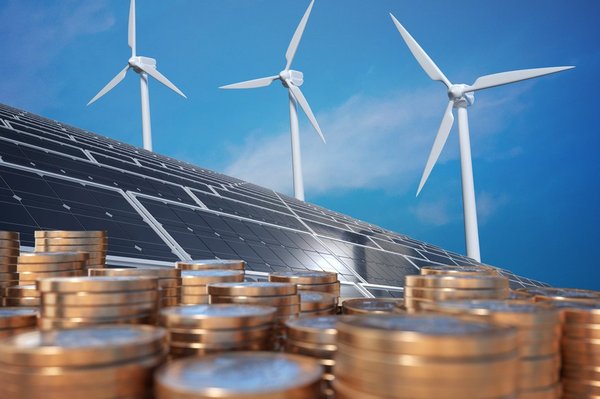Natural gas is a vital fuel source. We use it for producing power, heating our homes, and for various other residential, commercial, and industrial functions. It's the cleanest-burning fossil fuel, abundant, and cheap.
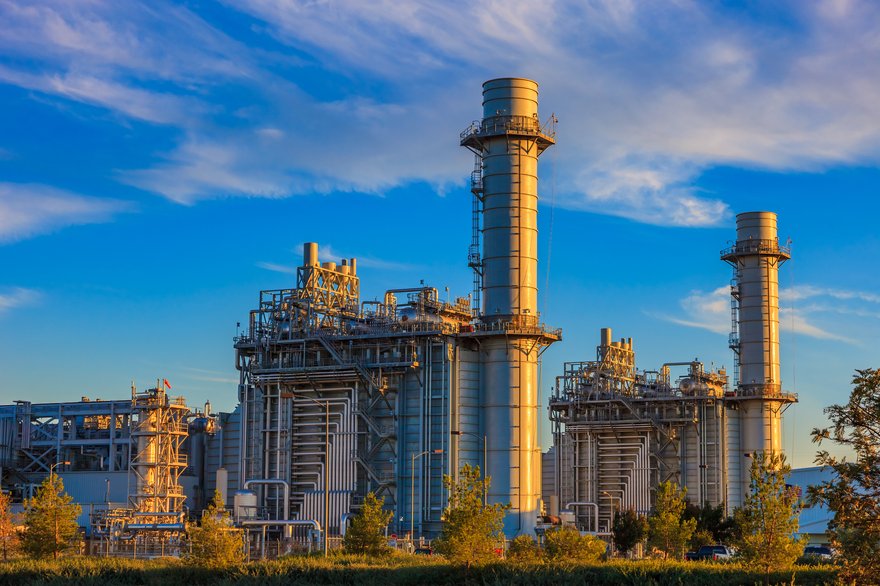
These factors make natural gas a critical “bridge fuel” during the energy transition to lower carbon alternatives. It can help bridge the gap by supplying cleaner baseload power and helping to offset the intermittency issues of wind energy and solar power.
Given the unique characteristics of natural gas, demand is on track to continue growing in the coming years. The International Energy Agency sees natural gas demand rising 31% by 2040, outperforming an expected 21% increase in oil demand. That makes it an important market for investors. Here's a closer look at how to invest in natural gas stocks.
Top Natural Gas Stocks
While oil is the largest energy market, natural gas plays an important role. Several companies focus on this cleaner-burning fossil fuel. Some of the best natural gas stocks for investors to consider buying include:
| Natural Gas Stock | Ticker Symbol | Market Cap | What the Company Does |
|---|---|---|---|
| Cheniere Energy | $37.2 billion | One of the world's largest liquefied natural gas (LNG) exporters. | |
| EQT Corporation |
(NYSE:EQT) |
$15.5 billion | The largest natural gas producer in the U.S. |
| Kinder Morgan |
(NYSE:KMI) |
$40.8 billion | One of the largest natural gas infrastructure companies. |
1. Cheniere Energy
Cheniere Energy is the largest liquefied natural gas (LNG) producer and exporter in the U.S. It’s a full-service LNG provider that obtains, transports, liquefies, and delivers natural gas. Cheniere also has vessel chartering capabilities.
It has one of the largest LNG platforms in the world. In early 2022, Cheniere Energy owned interests in and operated two liquefaction and export facilities along the U.S. Gulf Coast:
- Sabine Pass LNG Terminal: Located in Louisiana, this terminal has six operating LNG trains, with the capacity to produce 30 mtpa (million metric tons per annum) of LNG each year. Cheniere owns an interest in Sabine Pass via its stake in Cheniere Energy Partners (NYSEMKT:CQP).
- Corpus Christi LNG Terminal: Located in Texas, this terminal has three operating LNG trains, with the capacity to produce 15 mtpa of LNG per year. Cheniere is also moving toward approving Corpus Christi Stage 3, anticipating making a final investment decision in 2022. This project could add more than 10 mtpa of additional capacity.
Cheniere sells the bulk of its LNG under long-term, fixed-rate contracts. That enables the company to generate predictable cash flow. It expects to produce a cumulative $10 billion in distributable cash flow through 2024.
The natural gas export company plans to allocate this cash flow on dividend payments (which it initiated in late 2021), repurchasing shares, paying down debt, and funding Corpus Christi Stage 3. Its balanced capital allocation plan should enable Cheniere to create significant value for its shareholders in the coming years.
2. EQT Corporation
EQT Corporation is the largest natural gas producer in the U.S. The company focuses on producing gas from the Appalachian Basin, which stretches across Pennsylvania, West Virginia, and Ohio. As of early 2022, EQT owned 940,000 net acres in the core of the Marcellus Shale. It produced an average of 5.5 billion cubic feet of natural gas equivalent per day. If EQT were a country, it would be the 12th-largest gas producer in the world.
EQT's size gives it scale advantages and makes it one of the world's lowest-cost natural gas producers. It also has the best credit profile in its peer group, giving it access to low-cost debt and further reducing costs. These factors position EQT to generate significant free cash flow.
The company expects to produce more than $10 billion in cumulative free cash flow through 2026. While that assumes competitive natural gas pricing at early 2022 levels, the company also uses hedges to help mute the impact of volatility. Meanwhile, it has upside potential if prices rise.
EQT expects to use some of its free cash flow to repay debt in the near term and strengthen its financial position. It plans to pay off $1.5 billion of debt as it matures through 2023. That would leave the company with ample excess cash to use on other shareholder-friendly activities such as dividends, share repurchases, and accretive acquisitions. It launched a $1 billion share repurchase authorization in late 2021 that it expects to use by 2023. The company also reinstated its dividend in late 2021, which it intends to increase in the coming years.
EQT aims to continue being a consolidator in the natural gas sector. It purchased Alta Resource Development for $2.925 billion in 2021 and Chevron's (NYSE:CVX) Appalachian Basin assets for $735 million in 2020. The deals have expanded its production, scale, and free cash flow, making it the dominant gas producer in the U.S.
3. Kinder Morgan
Kinder Morgan is a leader in operating energy infrastructure in North America, controlling the nation’s largest natural gas transmission network. In early 2022, it had 71,000 miles of natural gas pipelines to go along with 700 billion cubic feet of storage capacity. Kinder Morgan's infrastructure connects every major natural gas resource play to key demand centers. It handles about 40% of all the natural gas consumed and exported in the U.S. each year.
In addition to natural gas, Kinder Morgan is also the largest independent transporter of refined petroleum products, independent terminal operator, and carbon dioxide transporter. The company produces oil, renewable natural gas (RNG), and LNG.
Kinder Morgan's leading natural gas infrastructure business generates very stable cash flow. Overall, 94% comes from take-or-pay contracts, other fee-based arrangements, or hedges. That allows it to produce more than $4 billion in free cash flow each year.
Kinder Morgan allocates its cash flow toward paying a high-yielding dividend, repurchasing shares, and expanding its natural gas network through capital projects and acquisitions. The company entered 2022 with $1.4 billion of expansion projects in its backlog, about 45% of which were natural gas-related infrastructure.
Acquisitions have become a notable growth driver in the past year. Kinder Morgan made two sizable deals in 2021. The company bought Stagecoach Gas Services, a pipeline and storage network in the Northeast, for $1.22 billion. It also bought Kinetrex Energy, an RNG producer, for $310 million.
Kinetrex is the first transaction by Kinder Morgan’s energy transition ventures business unit, which it launched in 2021. The segment aims to identify, analyze, and pursue commercial opportunities as the energy sector transitions to lower-carbon fuel sources. Kinder Morgan's extensive natural gas infrastructure footprint makes it ideally suited to transport lower-carbon fuel sources such as RNG and hydrogen energy, positioning it for the future of energy.
Related investing topics
Brief overview of the natural gas market
Natural gas is an abundant, cleaner, low-cost, and versatile fuel -- but it has some important limitations. In its gaseous form, it must travel by pipeline. Because of that, infrastructure is essential for the natural gas industry.
Pipeline companies must build and operate the midstream infrastructure such as pipelines, processing plants, and storage facilities to transport gas from production basins to end markets. Meanwhile, natural gas needs to become a liquid for transportation overseas.
Infrastructure companies often make the best natural gas stocks. They're less susceptible to the energy industry's cyclical nature and pricing volatility. Most natural gas infrastructure companies generate stable cash flow by collecting fees as natural gas moves through their network, giving them a "toll booth" business model.
The secret to finding top natural gas stocks
Demand for natural gas should continue growing in the coming years. It’s the cleanest fossil fuel, making it a good bridge to renewable energy.
However, like oil, the price of natural gas can be quite volatile. Investors should make sure they understand the risks before buying natural gas stocks.
One secret to uncovering the best natural gas stocks is to focus on the lowest cost producers. These companies should still be able to make money when prices decline. Another key criteria is finding gas producers that have strong balance sheets. That will give them the financial flexibility to weather the storms.
An alternative is to consider investing in natural gas infrastructure companies that own pipelines and LNG export facilities. They should benefit from growing gas demand without the direct exposure to pricing. In addition, these companies tend to pay attractive dividends.
The key is to find natural gas stocks that can benefit from the sector’s long-term growth potential, while also being in the position to weather the inevitable storms of volatility.
FAQs
What are the best natural gas stocks?
The best stocks feature either ultra-low production costs or generate steady fee-based income from long-term contracts. As one of the largest and lowest-cost natural gas producers, EQT stands out as a top natural gas stock. Likewise, the steady cash flow generated by natural gas infrastructure companies such as Kinder Morgan and Cheniere Energy makes them stand out as top natural gas stocks.
What is liquified natural gas?
Liquefied natural gas, or LNG, is the liquid form of natural gas. In its natural gaseous state, it can’t go on ships to be exported to global markets. Instead, specialized facilities supercool the gas to turn it into a liquid, which can then go on gas-carrying ships and be exported to global markets.
Is natural gas a good investment?
Natural gas investment has been challenging in recent years due to oversupply and volatile pricing. However, demand for the cleaner fuel should continue to grow in the coming years, benefitting natural gas stocks. Consequently, it could be a good investment over the long term.




